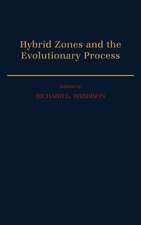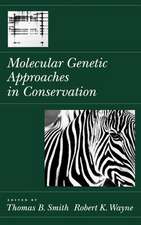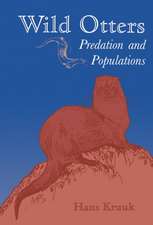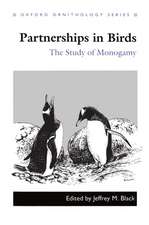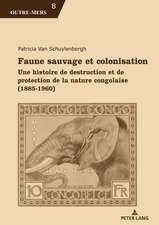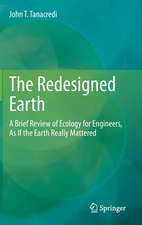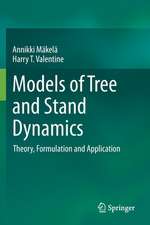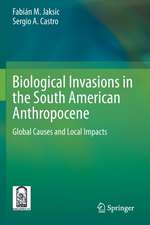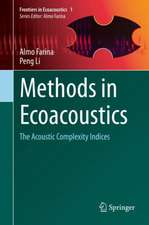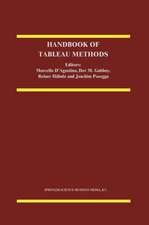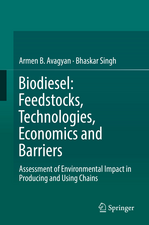Philosophy of Ecology: Handbook of the Philosophy of Science, cartea 11
Dov M. Gabbay, Paul Thagard, John Woods Bryson Brown, Kevin de Laplante, Kent Peacocken Limba Engleză Hardback – 27 apr 2011
- Provides a bridge between philosophy and current scientific findings
- Covers theory and applications
- Encourages multi-disciplinary dialogue
Preț: 876.21 lei
Preț vechi: 1141.27 lei
-23% Nou
Puncte Express: 1314
Preț estimativ în valută:
167.68€ • 174.84$ • 139.36£
167.68€ • 174.84$ • 139.36£
Carte tipărită la comandă
Livrare economică 14-28 martie
Preluare comenzi: 021 569.72.76
Specificații
ISBN-13: 9780444516732
ISBN-10: 0444516735
Pagini: 444
Dimensiuni: 178 x 254 x 25 mm
Greutate: 1.09 kg
Editura: ELSEVIER SCIENCE
Seria Handbook of the Philosophy of Science
ISBN-10: 0444516735
Pagini: 444
Dimensiuni: 178 x 254 x 25 mm
Greutate: 1.09 kg
Editura: ELSEVIER SCIENCE
Seria Handbook of the Philosophy of Science
Public țintă
Scholars, graduate students and policymakers with an interest in ecologyCuprins
Philosophy of Ecology Today
Origins and Development of Ecology
The Legend of Order and Chaos: Communities and Early Community Ecology
Philosophical Themes in the Work of Robert MacArthur
Embodied Realism and Invasive Species
A Case Study in Concept Determination: Ecological Diversity
The Biodiversity-Ecosystem Function Debate in Ecology
A Dynamical Approach to Ecosystem Identity
Symbiosis in Ecology and Evolution
Ecology as Historical Science
Environmental Ethics and Decision Theory: Fellow Travellers or Bitter Enemies?
Postmodern Ecological Restoration: Choosing Appropriate Temporal and Spatial Scales
Habitat Reconstruction: Moving Beyond Historical Fidelity
Modeling Sustainability in Economics and Ecology
Diversity and the Good
Origins and Development of Ecology
The Legend of Order and Chaos: Communities and Early Community Ecology
Philosophical Themes in the Work of Robert MacArthur
Embodied Realism and Invasive Species
A Case Study in Concept Determination: Ecological Diversity
The Biodiversity-Ecosystem Function Debate in Ecology
A Dynamical Approach to Ecosystem Identity
Symbiosis in Ecology and Evolution
Ecology as Historical Science
Environmental Ethics and Decision Theory: Fellow Travellers or Bitter Enemies?
Postmodern Ecological Restoration: Choosing Appropriate Temporal and Spatial Scales
Habitat Reconstruction: Moving Beyond Historical Fidelity
Modeling Sustainability in Economics and Ecology
Diversity and the Good
Recenzii
"…whereas much prior philosophizing about ecology has been either environmental fluff or the academic rationalization of predetermined and platitudinous endpoints (e.g., wanton destruction of nature is unethical), there appears now to be the real possibility of a philosophy of ecology." (reprinted from The Quarterly Review of Biology, June 2012)--BookInspections.com, May 26, 2013
"The present volume brings together in one place the recent works of many thinkers, including those such as Jay Odenbaugh and Gregory Mikkelson, professional philosophers who have made understanding and interpreting ecology their primary focus (and not just ecology in general, but specific problems in ecological theory). Thus, whereas much prior philosophizing about ecology has been either environmental fluff or the academic rationalization of predetermined and platitudinous endpoints (e.g., wanton destruction of nature is unethical), there appears now to be the real possibility of a philosophy of ecology…. [T]the essays by Christopher Eliot (The Legend of Order and Chaos: Communities and Early Community Ecology), James Justus (A Case Study in Concept Determination: Ecological Diversity), and Sahotra Sarkar (Habitat Reconstruction: Moving Beyond Historical Fidelity) are landmarks in the clarification of the philosophical problems that are throughout ecology."--The Quarterly Review of Biology, June 2012, page 141-2
"The present volume brings together in one place the recent works of many thinkers, including those such as Jay Odenbaugh and Gregory Mikkelson, professional philosophers who have made understanding and interpreting ecology their primary focus (and not just ecology in general, but specific problems in ecological theory). Thus, whereas much prior philosophizing about ecology has been either environmental fluff or the academic rationalization of predetermined and platitudinous endpoints (e.g., wanton destruction of nature is unethical), there appears now to be the real possibility of a philosophy of ecology…. [T]the essays by Christopher Eliot (The Legend of Order and Chaos: Communities and Early Community Ecology), James Justus (A Case Study in Concept Determination: Ecological Diversity), and Sahotra Sarkar (Habitat Reconstruction: Moving Beyond Historical Fidelity) are landmarks in the clarification of the philosophical problems that are throughout ecology."--The Quarterly Review of Biology, June 2012, page 141-2











